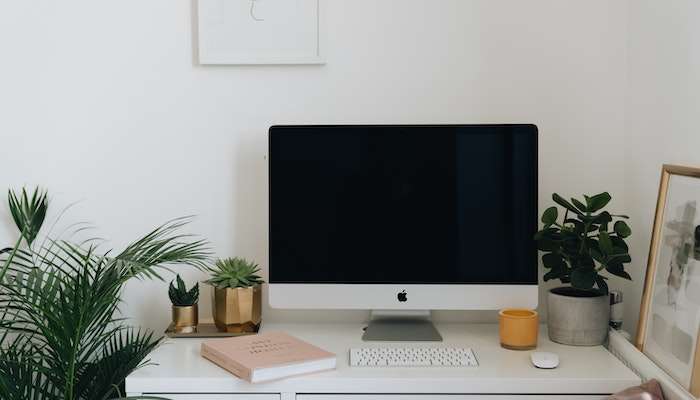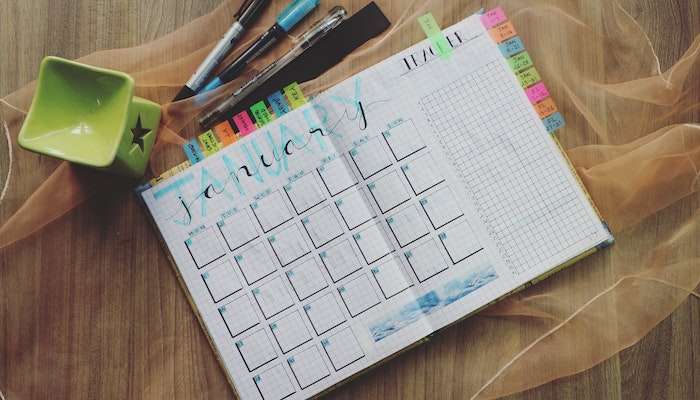
We all have days when we can’t complete everything on our to-do list. However, many people battle productivity daily. The list of what’s left to accomplish becomes longer as the day goes on, and you walk away from work feeling overwhelmed and sad. If this sounds all too familiar, these tips can help you feel more productive at work without taking away from your personal life.
1. Create a Dedicated Workspace
We spend nearly one-third of our lives at work. However, if you want to work optimally and avoid burnout, you need an inviting, calm, and conducive workspace.

A dedicated workspace helps your brain recognize that it’s time to work. A dedicated workspace lets you “leave work at work” to maintain an optimum work-life balance. If you work from home, this distinction can be especially important so you separate your work and personal life within your home.
Also, many people fill their workspace with items that spark joy without adding clutter. These items could include pictures of your loved ones, coffee mugs that make you laugh, or colorful wall art. Also, a workspace with natural lighting and plants will boost your productivity and mood.
Tip: Posters make great wall art in an office, assuming you hang them the right way.
2. Set Working Hours
One of the biggest revolutions in the modern workplace is the notion of flexible working hours. When a company offers flexible scheduling, employees can decide their own working hours. Unfortunately, this can cause issues if not properly managed, which is why it’s best to maintain set working hours even if your company lets you flex your schedule.
Our bodies thrive when we have established, predictable routines we follow. Bedtime routines promote healthy sleep schedules. Morning routines invigorate us so we can make it through the day. An established work routine helps you focus when it’s time for work and pivot to home life when the work day is done. This also helps you avoid overworking or worrying about work while you are “off the clock.”
3. Structure Your Work Day In Advance
Many use project management apps to organize projects and keep up with deadlines. However, doing this alone isn’t enough to thoroughly structure your work day to maximize productivity and account for daily tasks you must complete. Instead, it would be best if you found a way to structure your day.

If you can, schedule a short block of time to map out your week. You can use time blocking or another scheduling method to do this. Then, each morning, take a few minutes to review your plan for the day and make any necessary adjustments. This will help you know what to focus on each day and prevent you from procrastinating. You will also notice lower stress levels and likely take less work home.
4. Do Not Set Up Work Accounts on Personal Devices
Modern technology makes it easier for us to remain “always on” for work. However, if you are responding to work emails from your phone at 10:00 pm, you are depriving yourself of sleep and working much harder than you should be.
One of the easiest ways to avoid this overworking is by not installing your work email or messaging platform on your phone. You can check email and instant messages from a computer, so why have it on your phone? By not setting up work messaging on your personal phone, you are setting clear boundaries with work, which will help your mental health and your work-life balance because you can easily “turn off” work at home.
If you need additional advice on balancing your professional and personal life, check out our tips for improving work-life balance.
5. Avoid Multitasking
If you feel like there aren’t enough hours in the day, you may think that trying multiple things at once is the way to get more work done. However, studies show this isn’t the case. In fact, just 2.5 percent of people can multitask effectively.

So, as you plan out your day, focus on just one task at a time. If possible, mute notifications and don’t leave your email open as you work on tasks that require attention. Also, if you work from home, don’t try to do home chores while also working because you will inevitably drop the ball on something and won’t be as productive.
6. Take Breaks During the Work Day
Studies show people who sacrifice breaks to get more work done are less productive than those who take several breaks throughout the workday. These breaks help you recharge to concentrate and remain productive while you work. Also, just a few 15-minute breaks help employees feel better about their work conditions.
More importantly, these breaks allow you to practice psychologically detaching from your work. This makes it easier for you to pull away from work when your set working hours are done, so you can practice work-life balance. In other words, taking regular breaks during the work day help train your mind to separate work from leisure.
7. Have a Mentor
Sometimes you can do all the right things and still feel like your productivity at work is lacking. In that case, a mentor can help provide insight and make additional recommendations. They probably have additional years of experience, know the work you do, and may have tips or shortcuts that you haven’t yet discovered.

Also, a mentor can help you see when you’re overworking or stressing too much over simple tasks. They may have suggestions to help you improve your mental health and work-life balance or communicate with your co-workers, so you aren’t overworking as much.
It’s Time to Boost Your Productivity
We all struggle with productivity from time to time. However, these tips can help you stay on task and work more efficiently each and every day. Just remember to start with one new trick at a time, then slowly add more into your routine. Before you know it, you’ll be a well-oiled machine at work and still have energy when you get home.
Frequently Asked Questions
Are there apps that can help boost productivity?
Many apps and tools can help you boost your productivity. Some popular apps include Notion, Todoist, and Engross.
What if it feels like I am always working on things last minute?
If you feel like you can’t get caught up on work and finish tasks last minute, you may want to look at how you schedule tasks and structure your time during the work day. This can help you find gaps and boost productivity.
Image credit: cottonbro studio on Pexels












